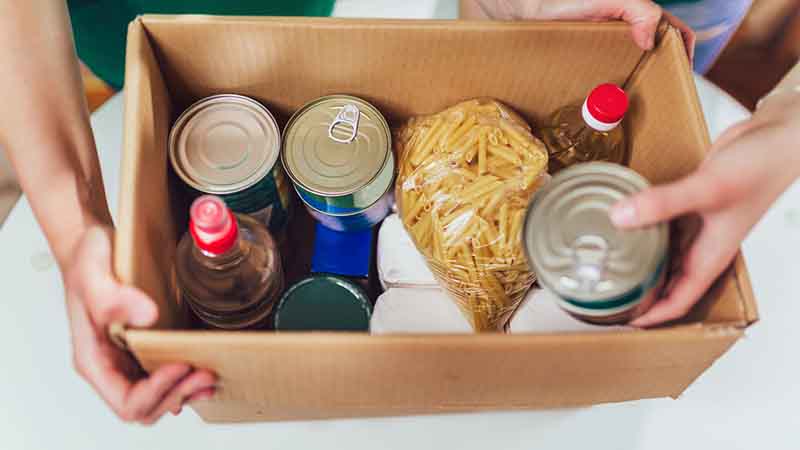Published:

A report released today by the Trussell Trust reveals how coronavirus has affected food bank use, with a huge rise in people needing to use a food bank in its network for the first time. Records also show that families with children are being hit the hardest during the crisis.
The report’s analysis, which was carried out by Heriot-Watt University’s Institute for Social Policy, Housing, Equalities Research (I-SPHERE) with support from the National Institute of Economic and Social Research estimates that food banks will give out six emergency food parcels a minute this winter.
If changes aren’t made this autumn, there is likely to be a 61% rise in need at food banks in the Trussell Trust’s network this winter, equating to 846,000 food parcels being given out.
The charity warns that, with mass unemployment predicted on a scale not seen since the early nineties, there will be further rises in poverty with 670,000 additional people classed as destitute by the end of 2020, meaning they cannot afford essentials like housing, energy and food. This is on top of year-on-year rises in the number of people unable to afford food and forced to food banks across the UK.
But the situation can be turned around, the charity says. The government response to protect jobs and incomes during this pandemic has shown what a difference can be made when support structures are put in place. The much-needed rises to some benefit levels and the job retention scheme prevented many more people from facing destitution. But the charity warns that with these schemes set to end, the government must act now.
Emma Revie, chief executive of the Trussell Trust, said: “Communities throughout the country have shown enormous resilience in helping more people than ever before. But food banks and other community charities cannot continue to pick up the pieces. None of us should need a charity’s help to put food on the table.
“Our research finds that Covid-19 has led to tens of thousands of new people needing to use a food bank for the first time. This is not right. If we don’t take action now, there will be further catastrophic rises in poverty in the future.”
“But it doesn't have to be like this. The pandemic has exposed the power of what happens when we stand together in the face of adversity. We must harness this power to create the changes needed to prevent many more people being locked into poverty this winter. With the furlough scheme set to wind down, we must act now to put in place protection for each other. The Budget and Comprehensive Spending Review present a pivotal opportunity to put things right. We must take it to help us weather the storm left in the wake of Covid-19.”
The charity says there should be no higher priority than preserving the lifelines that have saved so many from destitution through this pandemic. It points to this autumn’s budget and Comprehensive Spending Review as an opportunity to:
Protect people’s incomes by locking in the £20 rise to Universal Credit brought in at the start of the pandemic
Help people hold on to more of their benefits through the economic crisis by suspending benefit debt deductions until a fairer approach to repayments can be introduced
Make local safety nets as strong as possible by investing £250m in local welfare assistance in England
Professor Glen Bramley from I-SPHERE at Heriot-Watt University said: “Covid-19 has exposed the fact that many in our society are vulnerable to economic disruption and loss of work. It has shown that the 'safety net' of Universal Credit and other benefits is full of holes, meagre in scale of support and liable to encourage greater indebtedness among the poorest. The economic disruption has affected wide areas and sections of society, but as so often, it is those already less well-off who have been worst hit. If the furlough scheme and other 'temporary' measures are not extended, the situation will worsen this winter and the foodbanks will be even more hard-pressed."